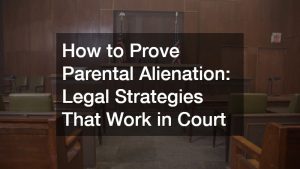- An estimated 114,000 same-sex couples are raising over 220,000 children in diverse locations across the U.S.
- Legal protections for LGBT families include marriage equality, joint adoption rights, and parentage laws.
- Transgender parents are protected by laws recognizing relationships, not conforming to gender norms.
- Anti-discrimination laws in housing, employment, and education offer additional protections for LGBT families.
- If their rights are breached, LGBT families should seek legal help, report incidents, and stay informed about the laws.
In recent years, there have been significant strides in recognizing and protecting the rights of LGBT families. The movement towards equality and justice has paved the way for new laws and policies to protect against discrimination and provide equal opportunities for all families regardless of sexual orientation or gender identity. However, many are still unaware of the specific legal protections available to these families. Here’s what you need to know about LGBT families in the U.S., the laws protecting them, and what you should do if your LGBT rights are breached.
LGBT Families in The U.S.
It’s estimated that about 114,000 same-sex couples are raising more than 220,000 children in the U.S. These families come from all walks of life and are located throughout the country – a stark reminder that LGBT rights are not just an issue for the coasts.
Legal Protections for LGBT Families
In recent years, new laws have been passed to ensure legal protections for LGBT families in the U.S. Here are some of them:
1. Marriage Equality

In 2015, same-sex couples were granted the right to marry across all 50 US states. This groundbreaking decision ensured that same-gender loving couples have access to the same legal rights and responsibilities as heterosexual couples. Before this ruling, same-sex couples faced legal barriers to getting married, making it challenging to access many of the legal protections that married couples enjoy.
Additionally, LGBT divorce is also now available. The divorce process is the same as any other divorce, except that LGBT couples may face additional legal challenges due to state laws on marriage and adoption. An LGBT divorce lawyer can help consult couples who need it. They can help direct the couple to the right resources and support to ensure their divorce is handled in a way that respects their rights as LGBT individuals.
2. Joint Adoption Rights
LGBT couples have the right to adopt children in the United States. State laws vary, but gay and lesbian couples have successfully adopted children throughout the United States. This helps provide legal recognition and security for their families. Joint adoption also ensures that both parents have custody rights.
3. Parentage Laws
In some states, laws that recognize a child’s legal second or non-biological parent have been implemented, even if they are not married to the biological parent. This means both parents will have legal recognition and rights to the child regardless of biological links. This can be particularly important for same-sex couples who adopt children or conceive through alternative forms of reproduction.
4. Security For Transgender Parents
Transgender people who are parents may face discrimination or legal obstacles if their gender identity does not conform to societal norms. Laws are in place protecting all parents based on relationships and not gender. This means that transgender parents have legal rights and responsibilities, regardless of their gender identity, and cannot be legally excluded from parenting.
5. Anti-Discrimination Laws
Anti-discrimination laws protect against discrimination based on sexual orientation and gender identity in housing, employment, public accommodations, and education. These laws give LGBT families protection against bias and hate in their daily lives.
What to Do if Your Family’s Rights Are Being Breached

The legal protections available to LGBT families provide invaluable rights and recognition. They ensure that same-sex couples receive the same rights and protections as heterosexual couples and that their families are legally recognized and protected. Although more progress is needed, the laws and policies provide a strong foundation for the future of LGBT rights and equality. Additionally, here are some tips you need to know if your rights are being breached:
- Reach out to an LGBT advocacy organization for advice or resources.
- If necessary, contact an experienced LGBT lawyer to investigate the case further and help protect your rights.
- Report discrimination incidents to authorities or other relevant organizations.
- File a complaint with federal agencies if your family’s rights have been violated.
- Speak out against discrimination and injustice when possible by sharing your story or joining campaigns to raise awareness.
- Educate yourself and stay current on the laws and policies affecting LGBT families in your state.
LGBT families deserve equal rights, recognition, and protection under the law. Knowing the legal protections available can help you better protect your rights and ensure your family has the same opportunities as all other families.
LGBT families are an essential part of society, and they deserve to be treated with respect and acceptance regardless of their sexual orientation or gender identity. With new laws protecting LGBT individuals from discrimination, we are moving closer toward true equality and justice, but work still needs to be done. By standing together and demanding fair treatment for all families, we can create a more inclusive world for everyone.






